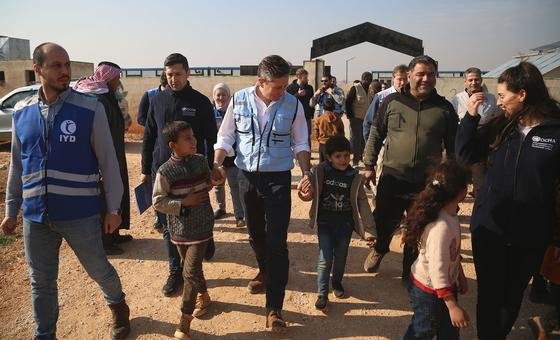IOM Director General Amy Pope said on Friday, “We are not promoting mass returns (of people); communities are clearly not ready to accommodate those who have been displaced, and will return home… This situation will be a burden to the country.”
“Many people came back to find their houses in ruins,” he said.
Speaking to reporters in Geneva shortly after returning from a visit to the Syrian capital, Damascus, Amy Pope described how the 13-year war has destroyed “hospitals, schools, community centers and more.”
“Rebuilding homes is part of the overall solution, but it also requires access to health care and essential services for (Syrians) to feel safe and lay the foundations for rebuilding their lives.”
More than half of Syria’s population has been displaced, an estimated 16.7 million people are in need of humanitarian assistance, and more than 6 million Syrian refugees have sought refuge in neighboring countries.
Need ‘a lot’ of money
“Funding needs, both financial resources and political resources, are going to be enormous,” said Amy Pope, head of the IOM.
He said the IOM “will be part of any effort to help address the situation there”, including a Syria reconstruction conference planned by the French government next January.
However, after the overthrow of the Assad regime by Hayat-Tahrir al-Sham (HTS) fighters and other groups, the task of reconstruction and investment in Syria remains difficult and complex.
In particular, the situation in Syria remains complicated by sanctions imposed by the United States and the European Union following the violent suppression of pro-democracy protests in 2011.
UN Secretary-General Antonio Guterres said on Thursday that international solidarity with the Syrian people is essential from the international community until the conditions for the lifting of sanctions imposed by these member states are met.
He stressed the urgent need to provide humanitarian aid and support efforts to rebuild the economy.
IOM chief Amy Pope, echoing the UN chief’s appeal, described the impact of sanctions on Syria, where “people don’t have access to cash… they don’t have access to credit”.
Instead of buying goods, goods are bartered and wages are “very low and often insufficient to meet their most basic needs…so, to make things better again, those restrictions need to be rethought.”

